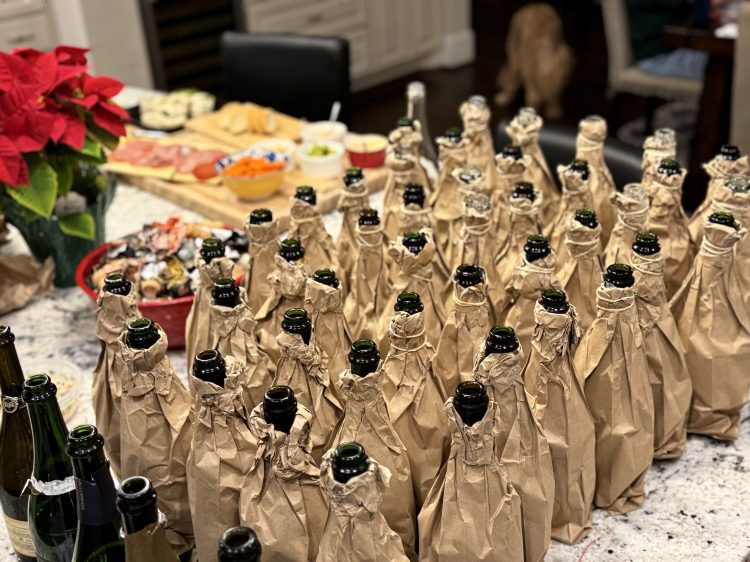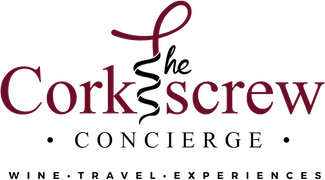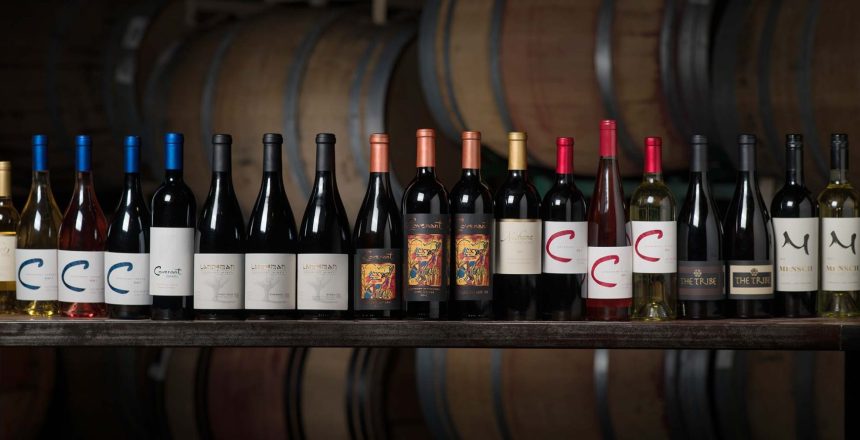I recently attended a tasting of Covenant Wines hosted by my friend Jeff Kralik aka The Drunken Cyclist. He’s the mastermind behind some of the marathon rosé, Pinot Noir, and sparkling wine tastings I’ve attended where I’ve shared a counter full of bottles wrapped in brown bags. He’s also a great host and even cooks for us sometimes. #Winning! Sadly, he’s also an Ohio State fan, but I try not to hold that against him. With Passover being observed, my mind came back to these wines and I thought what great Passover wines these are for those that observe. And what tasty wines these are for those of us that just enjoy good wine. Actually, I saw a delicious looking display of Passover desserts at Whole Foods, which in turn brought my mind back to Passover wines. At any rate…

During this particular tasting, we explored a really great lineup from Covenant Wines. What I didn’t know when I initially accepted the invitation is that the Covenant wines are kosher wines. Not being Jewish, I didn’t have an appreciation for what kosher wines were or were not. But talking to some friends in the know, apparently there is/was a misconception that kosher wines were syrupy sweet, that they are all cooked, and that they are not quality wines. While these types of kosher wines do exist, they represent a minority of the kosher wines out there. But we all know how an unpleasant experience can blow up and cause myths to persist.

What is Kosher Wine?
So even without a background in kosher wine, I did learn that perceptions of these wines vary greatly. But I can say that Covenant wines were delicious just like any other tasty wine I’ve enjoyed. Someone likened it to organic wines where, while we may like the process, some of the wines are good and some are not so good. When it comes to kosher wines, the biggest thing is that the entire winemaking process, from harvesting to bottling, must be overseen by a Sabbath-observant Jew. This ensures that nothing non-kosher comes into contact with the wine. There are also other requirements when it comes to ingredients, equipment, and handling, as well as specific rules around filtration. But none of these things have to detract from grapes being fermented into delicious wine. A kosher certification just assures those for whom it matters, that the wines adhere to specific standards.
Covenant Wines are Great Wines that Happen to be Kosher
Brought to life by founders Jeff Morgan and Leslie Rudd in 2003, the winery was founded with the goal of making top quality kosher Napa Cabernet Sauvignon. In his prior life, Morgan was a professional jazz musician and wine critic at the Wine Spectator. Rudd owned vineyard land in Napa and was the proprietor of Dean & DeLuca. Together, they’ve leveled up kosher wine growing from a 500-case Napa Valley Cabernet Sauvignon project to more than ten times that amount.
Today, Covenant has gone beyond the confines of Napa. Jeff personally drives all over the state to source quality grapes from longtime grower friends. Focusing on sustainable and organic vineyards, he sources fruit from growers in Napa Valley, Los Carneros, Sonoma County, Bennett Valley, Sonoma Mountain, Dry Creek Valley and Sonoma Valley, Lake County, Santa Maria Valley, and the Sta. Rita Hills (y’all know these are my people!). He likes to say that you can taste a wide range of California AVAs just by simply visiting their Berkeley, CA tasting room. Outside of California, Covenant produces Israeli wine from the Gowan Heights region. After Rudd’s passing in 2018, Geoff Rochwarger, who is based in Israel, came aboard to partner with Morgan.

Given that Morgan is a prolific cookbook author, it’s no surprise that the Covenant wines are quite food friendly. We were able to taste a range of wines starting with a Blanc de Blancs Chardonnay sparkling wine followed by a Sonoma Mountain Chardonnay, an unusual and quite tasty Grenache and Pinot Noir Rosé, a red blend of Petite Sirah, Malbec, Zinfandel, and Syrah that was begging for BBQ, an Israeli Cabernet Sauvignon that gave me some Howell Mountain vibes, and a Napa Valley Cab Sauv. As a Chardy gal, I really enjoyed the Chardonnay, which gave me the racy acidity that I like as well a rich mouthfeel. Another surprise fave for me was the Israeli Cab. I don’t drink a lot of Cab, but appreciated the smooth, velvety tannins and lush black fruits from this one. And I’ll just say that the rosé is dangerous.
All in all, this was such an educational tasting for me. I wouldn’t hesitate to drink these wines on any occasion. That they are kosher seems to be icing on the cake for the observant. Cheers to Passover wines…or anytime wines.
**Cover Image Courtesy of Covenant Wines






No Comments